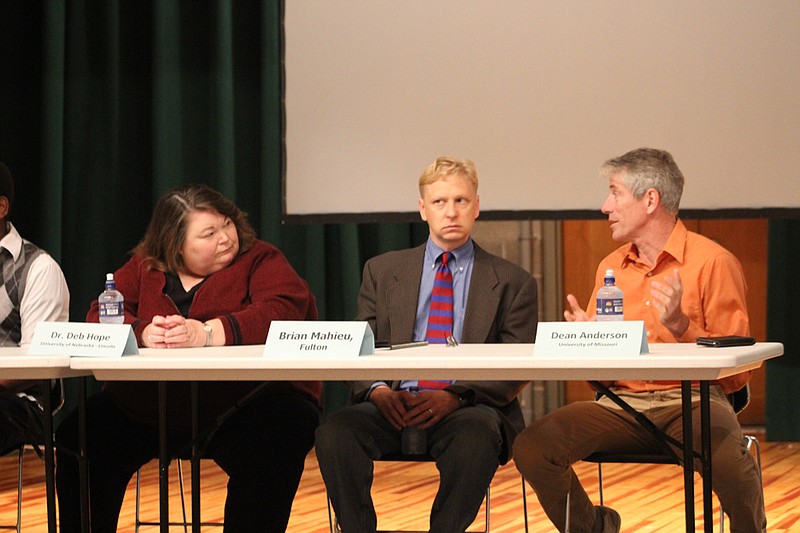Imagine being asked to leave parties, being barred from participating in leadership positions at your church, legally losing your business and family or even being told it was your fault your mother died of cancer, all because of an unchangeable part of your identity.
For the five panelists at the Cultural Competence Council's second annual Community Conversation - an event designed to highlight LGBT issues - they don't have to imagine. These are all examples they shared of discrimination they have faced as members of the lesbian and gay community.
But this year's guest speaker, University of Nebraska-Lincoln professor Deb Hope, explained that it can get better. Her speech, "To Be or Not To Be Out: The Benefits of Authenticity in the LGBTQ Community," focused on how individuals being open about their sexual orientation can help not only their mental health, but with social stigmas, as well.
About 25 people devoted Wednesday night and Thursday morning to the event, hosted this year at the Missouri School for the Deaf. Hope started her lecture Wednesday explaining the history of the psychological study of sexual identity, and how homosexuality was originally classified as a mental illness before research showed that, though being in a sexual minority is a risk factor for anxiety disorders, depression, suicide attempts and substance abuse, those issues were more tied to social stigma.
"I don't think it's something inherent with being gay, it's something associated with being gay that makes it more likely that they are experiencing these problems," said Hope. It's cultural, or their experiences."

